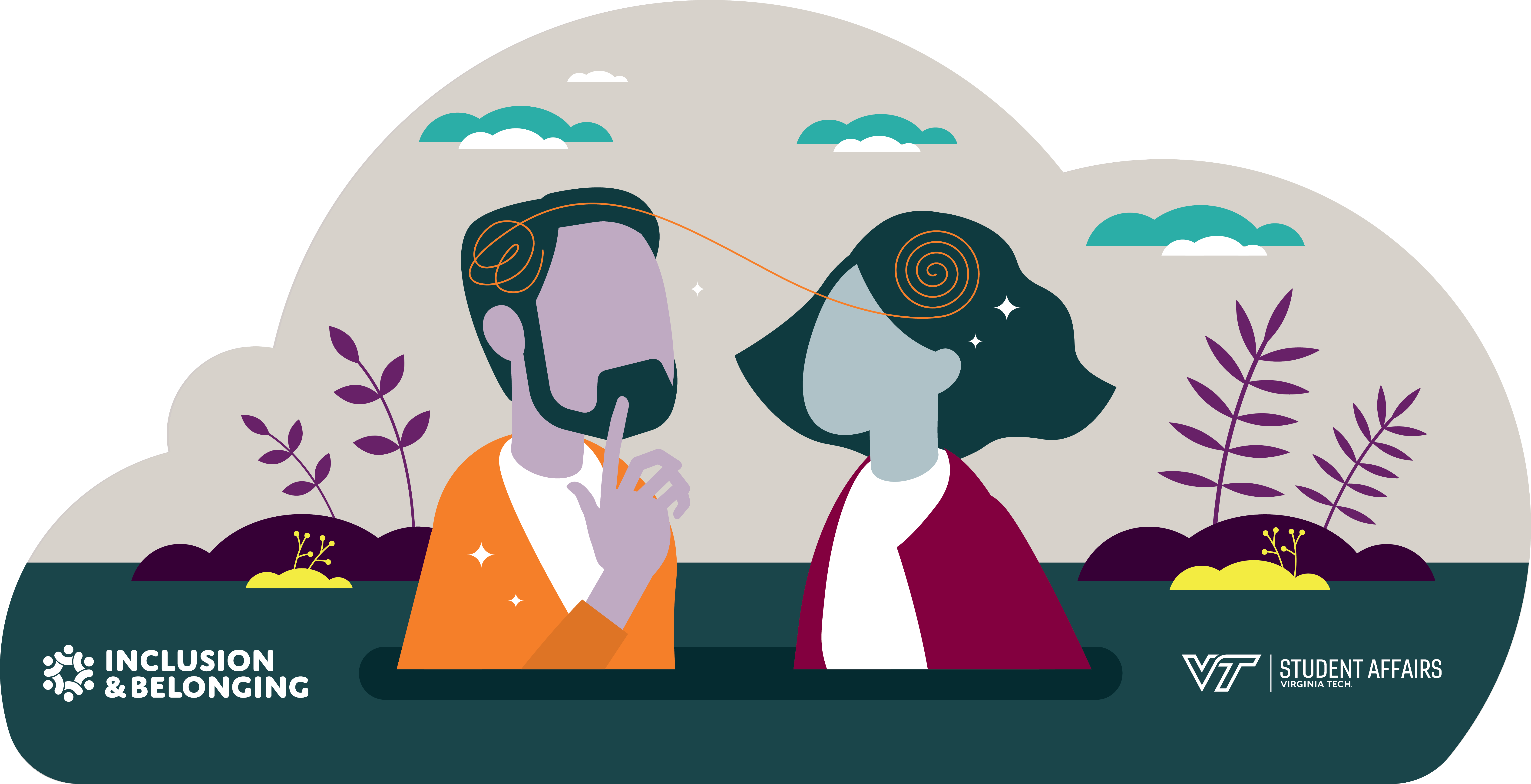Inclusion & Belonging


Human Interaction
When people of different backgrounds interact, they expand their appreciation, understanding, and respect for others. Engagement brings people together in ways that illustrate how all people matter.
Collaboration of different cultures, ideas, and perspectives enables greater creativity, innovation, and learning. Student Affairs supports access and success for all Virginia Tech students through programs, conversations, and experiences that develop cultural responsiveness, foster inclusion, build bridges of understanding, and teach effective advocacy. We help students become courageous leaders who serve as change agents and make the world more humane and just.
Inclusion & Belonging programs allow students to develop meaningful relationships, build relational competencies and skills, recognize and value the diversity of the Hokie Nation, and learn to live the Principles of Community. We make the Virginia Tech journey one that prepares students for academic achievement, personal growth, and lifelong fulfillment.


